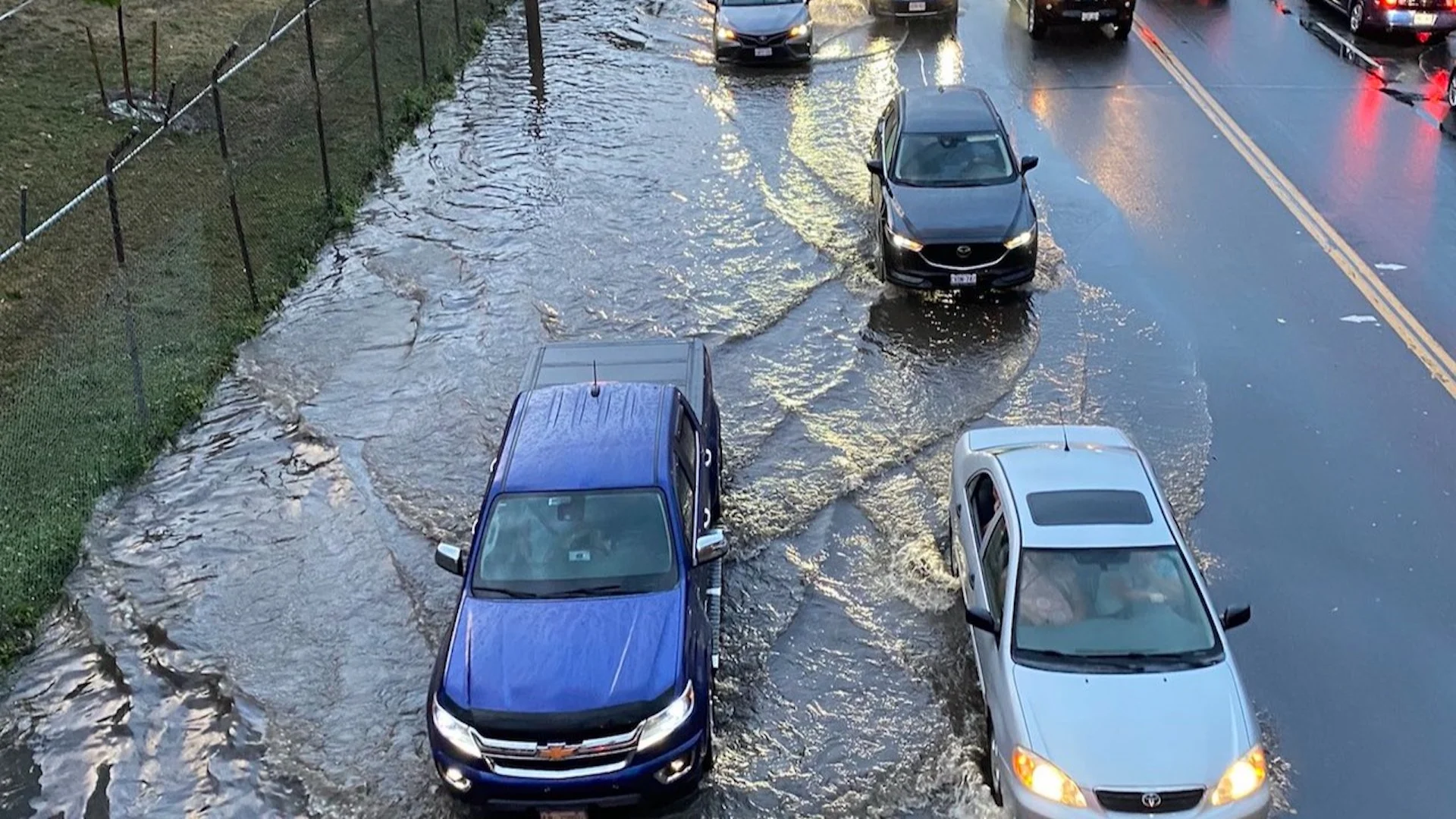
No region in Canada spared from this summer's weather afflictions
From flooding to wildfires to smashing temperature records, Canada saw it all this summer.
It was a summer to remember, Canada.
From coast to coast, there wasn't a single region that avoided some type of weather event this season, no matter how severe or seemingly benign to some folks.
RELATED: Could the cost of Toronto's recent, major flood match the 2013 event?
Below, we have compiled a top-five list of the most impactful events experienced in Canada from June until the end of August.
B.C.
In July, there were consecutive days above 35°C during a prolonged extreme heat event. Some locales, such as Lytton and Ashcroft, B.C., even managed to top 40°C. There were 18 successive days of those temperatures in Osoyoos, a Canadian record.
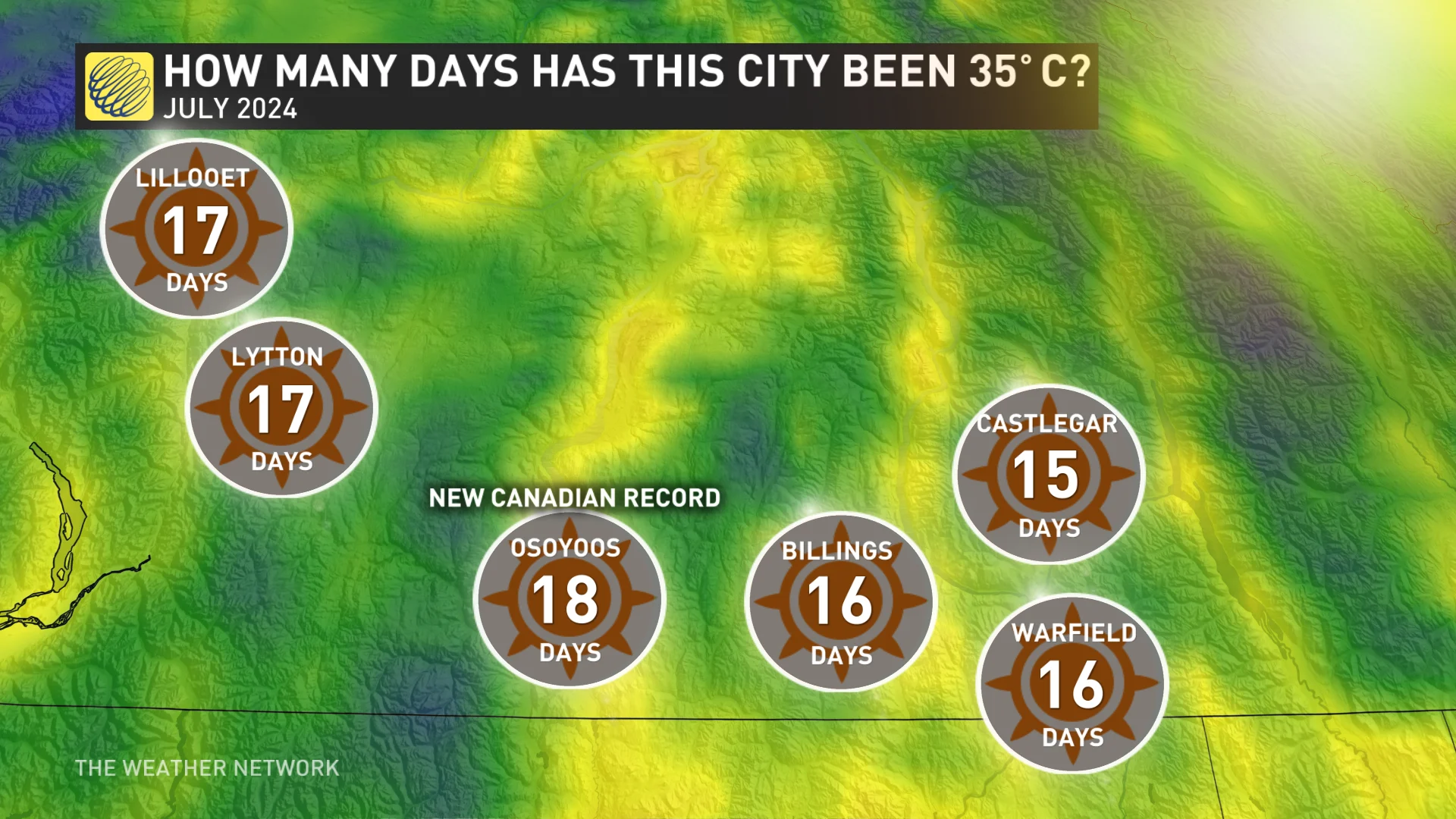
In addition to the heat, hundreds of wildfires were set ablaze, forcing evacuations in some communities.
A total of 61 per cent of all wildfires in British Columbia and Alberta were caused by lightning, above the long-term average. In B.C., 73 per cent of blazes were caused by lightning, compared to the 58 per cent average, while 43 per cent of Alberta's fires were ignited by lightning, versus its average of 32 per cent.
Alberta
Speaking of Alberta wildfires, a lightning strike initiated the devastating wildfire that severely damaged portions of the Municipality of Jasper, triggering evacuations on the evening of July 22. It led to an estimated $880 million in insurance payouts.
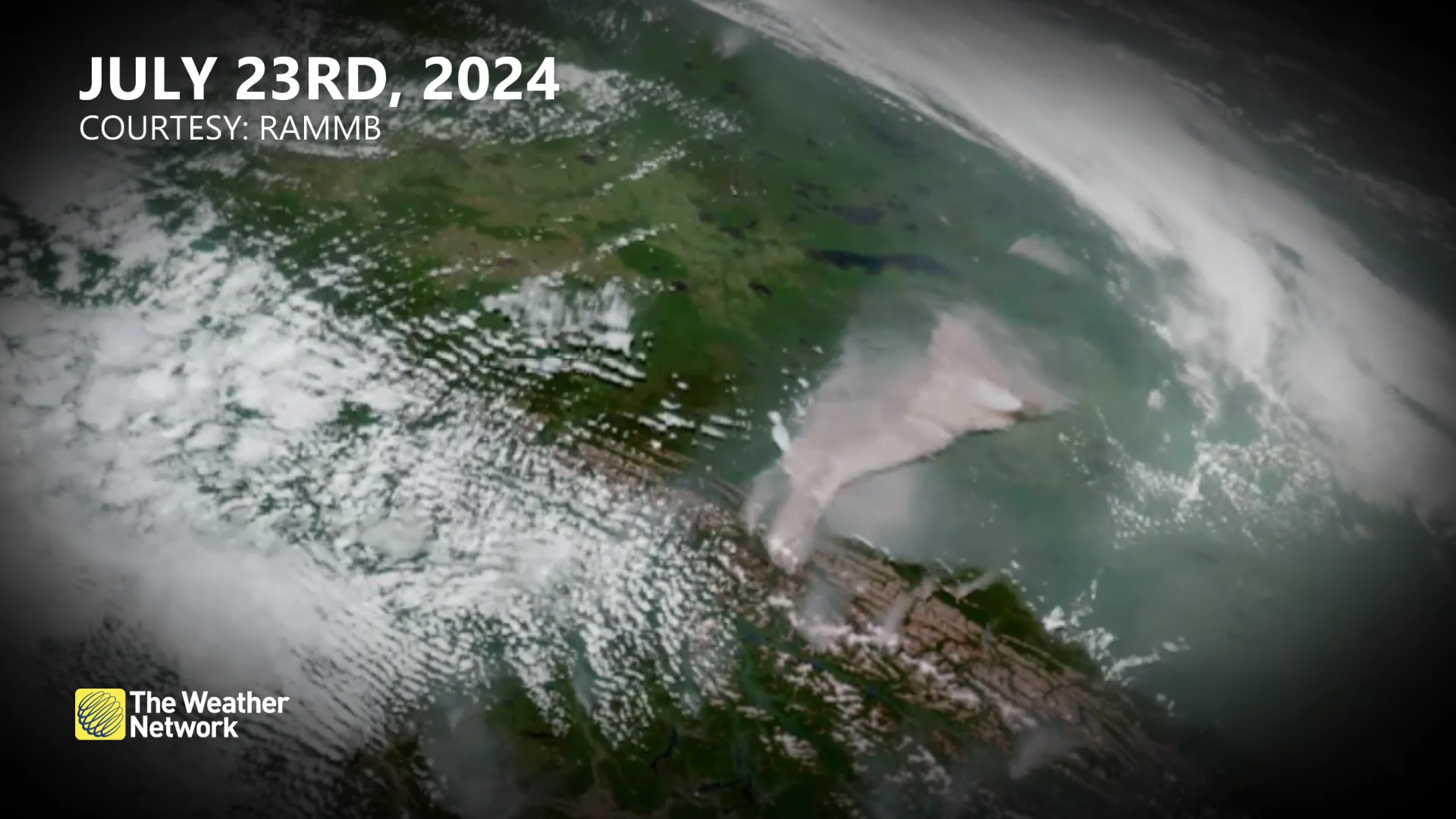
(RAMMB/CIRA/NOAA)
On Aug. 5, a costly hailstorm sideswiped the northern suburbs of Calgary, Alta. Insured damages from the Aug. 5 hailstorm could top $1 billion, researchers say, ranking similar to the 2020 event.
Ontario and Quebec
Moving east, the summer featured multiple, severe flooding events in the Greater Toronto Area (GTA) in Ontario and southern Quebec.
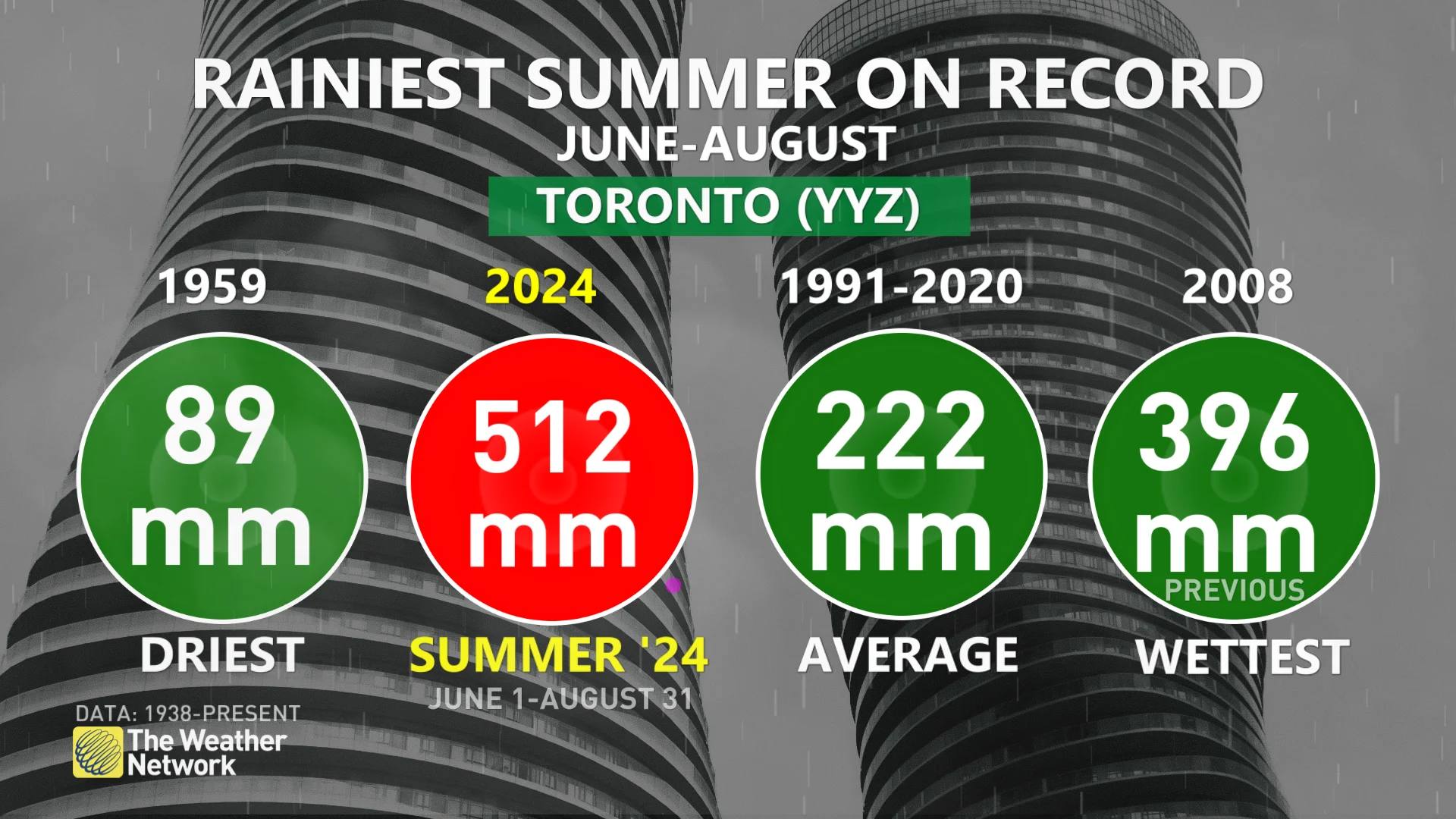
On July 16, 97.8 mm of rainfall fell at Pearson International Airport(YYZ), resulting in widespread flooding and power outages across Toronto and the GTA. The event created more than $940 million worth of insured damage, the Insurance Bureau of Canada (IBC) announced.
About a month later, on Aug. 17, Pearson airport saw its rainiest day on record (128.3 mm) with extensive flooding in Mississauga and Etobicoke, Ont., giving Toronto its rainiest summer on record (231 per cent of normal.
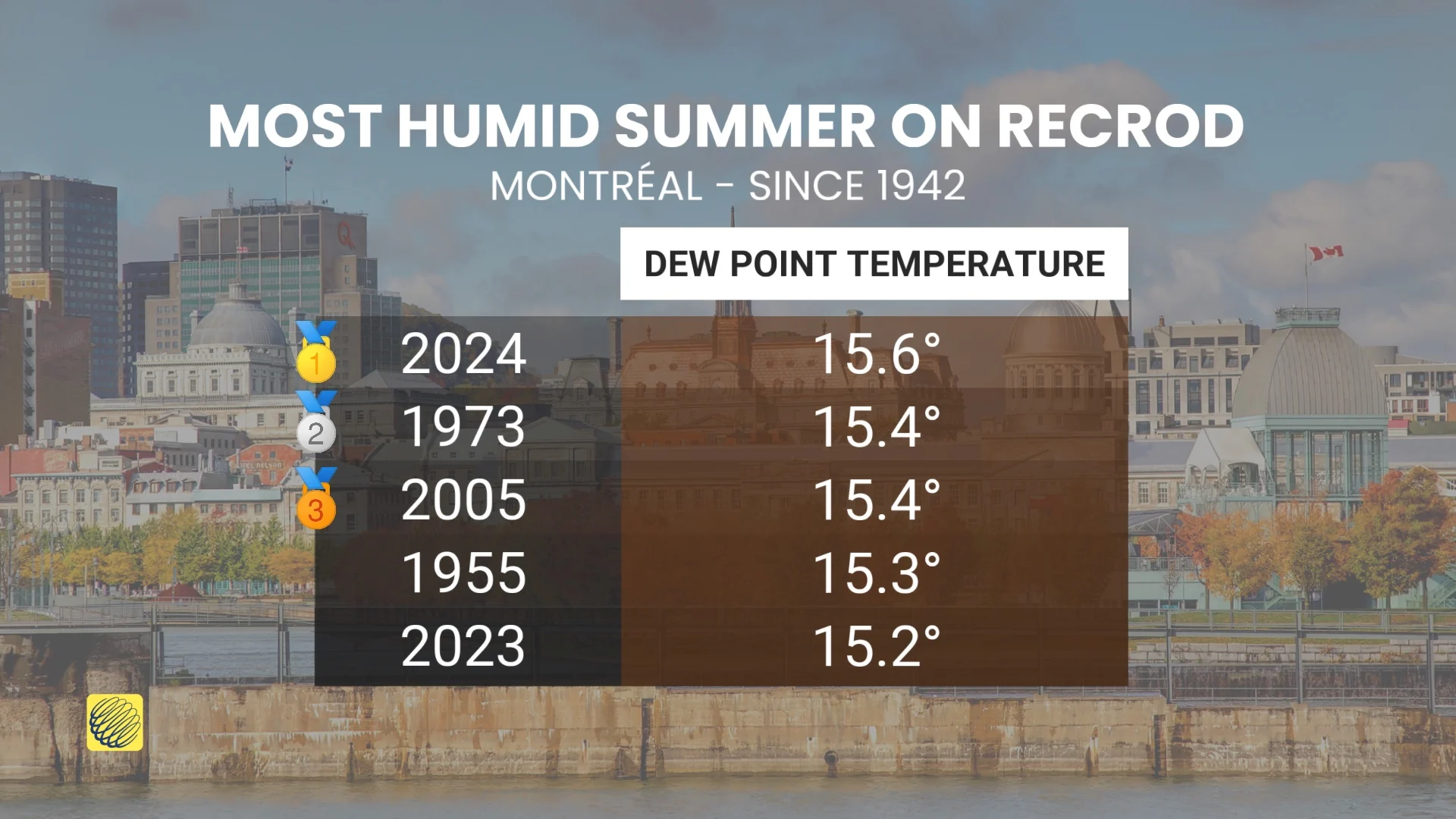
In Montreal, heavy precipitation gave the city its rainiest day in recorded history on Aug. 9 (154 mm). The city has also seen its rainiest (180 per cent of normal) and most humid summer (dew point was 15.6°C on record.
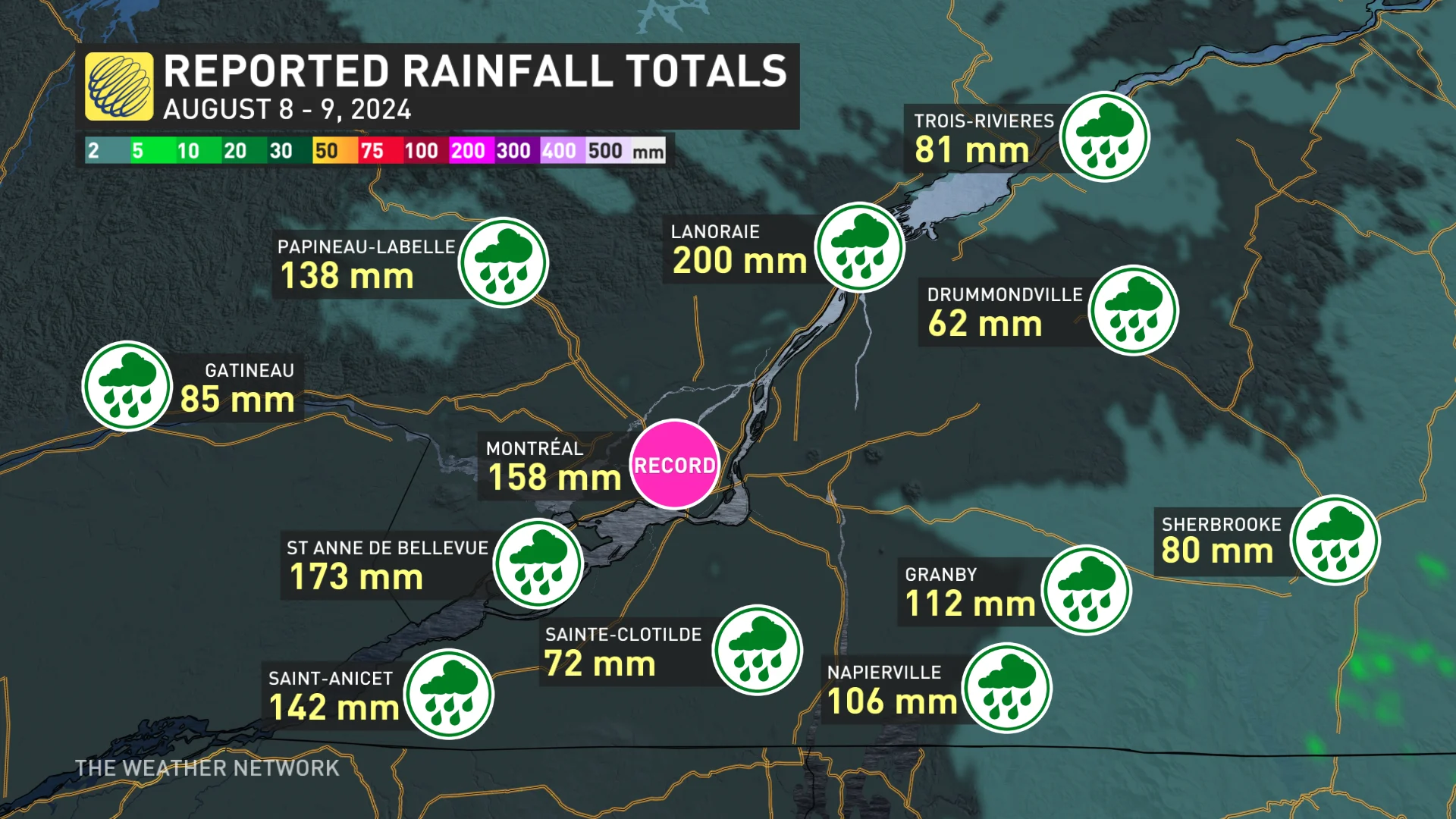
Newfoundland
After a sluggish spring, Newfoundland saw a strong summer finish.
Newfoundland recorded snowfall into mid-May, but the August temperatures comparatively sizzled.
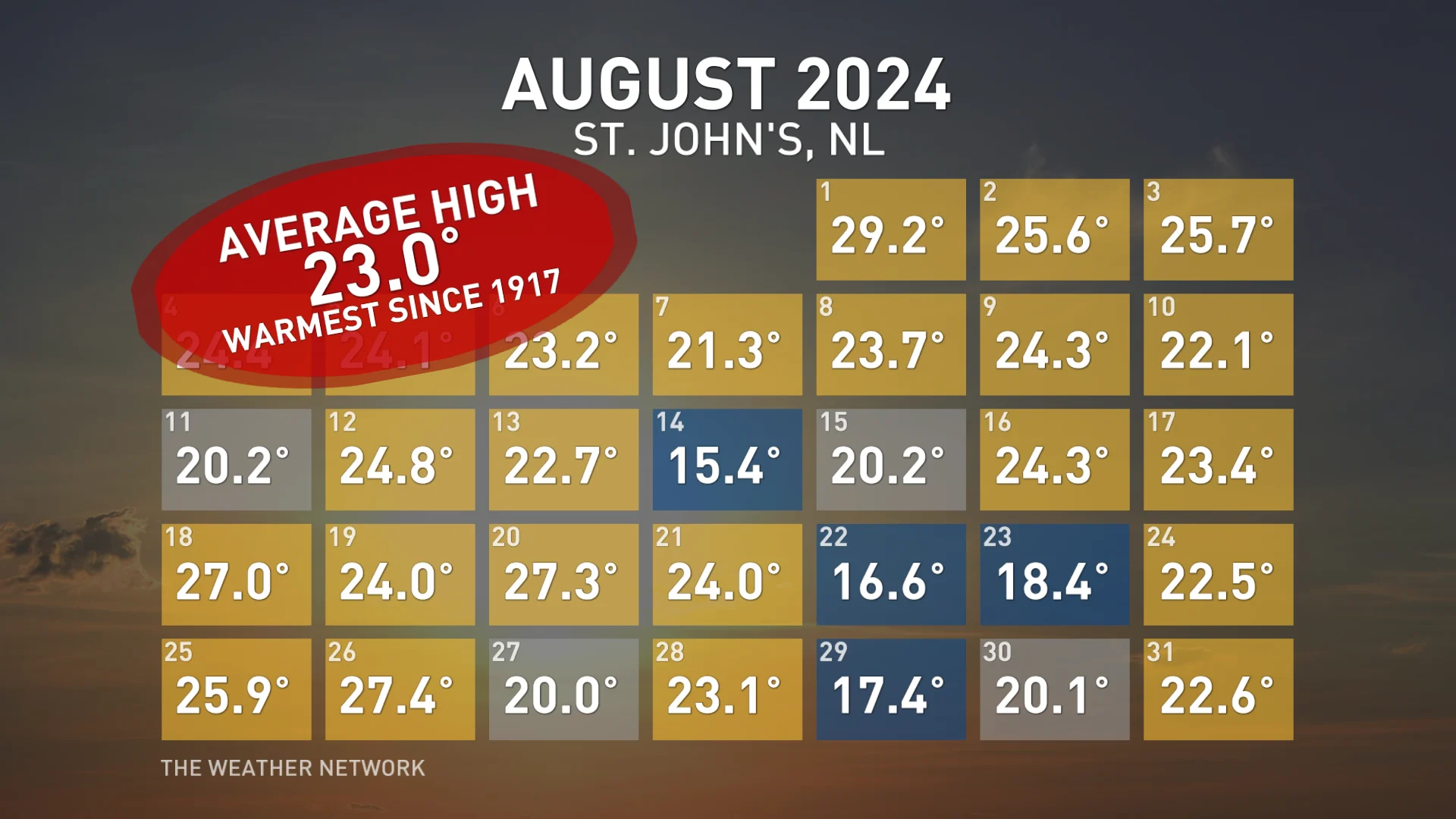
It was the third-warmest August on record for St. John’s, N.L., with the average daytime high touching 23°C –– the first time since 1917.
Northern Canada
We can't forget about the North.
All-time summer warmth reached inside the Arctic Circle in July and August.
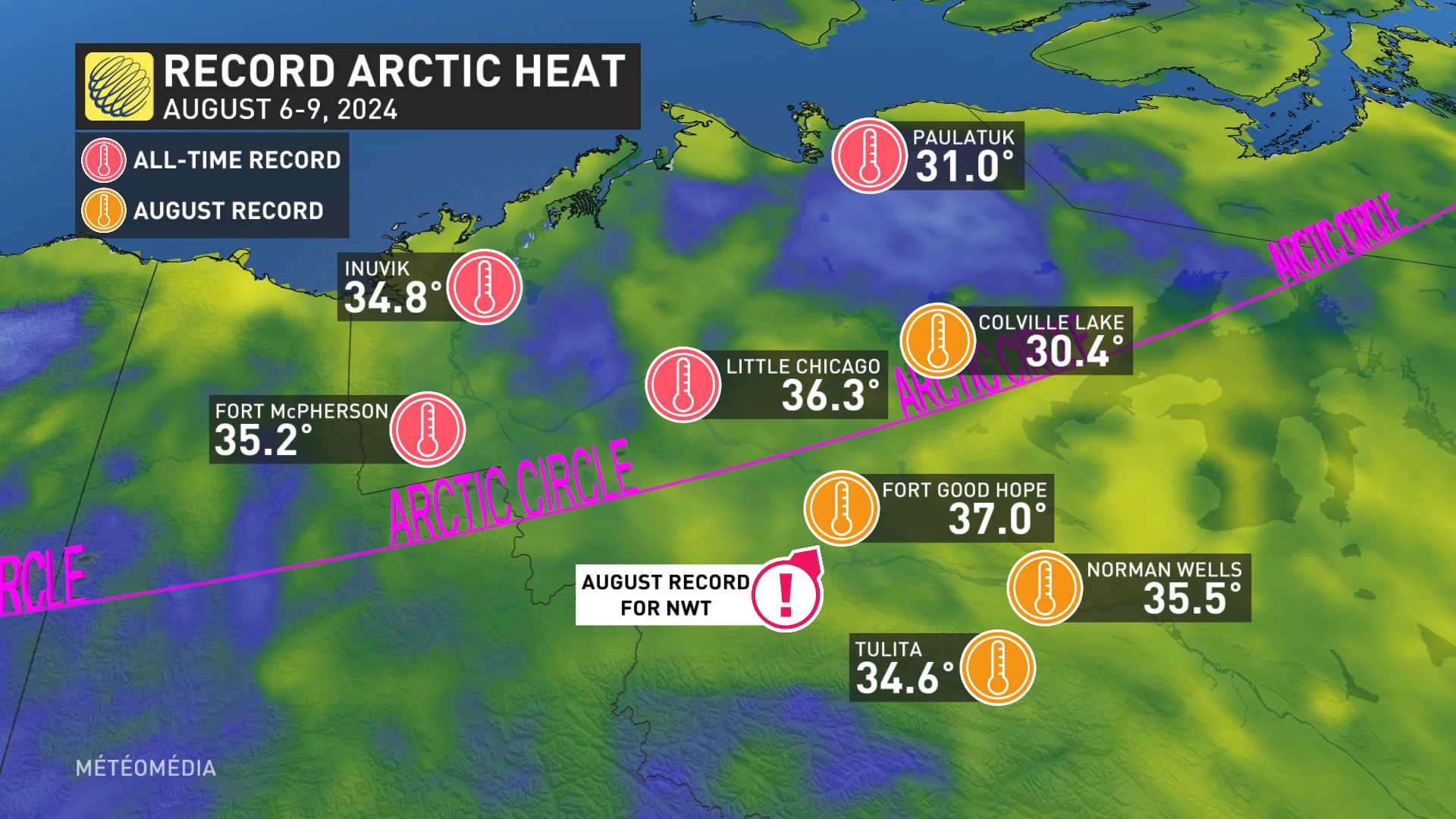
Inuvik reached 34.8°C, the first time on record for the community.
An August record for the Northwest Territories was set in Fort Good Hope, where the daytime reading hit 37°C.
Thumbnail courtesy of Cynthia McLeod/X, taken in Toronto, Ont.
With files from Tyler Hamilton, a meteorologist at The Weather Network, and Nathan Howes, a digital journalist at The Weather Network.











